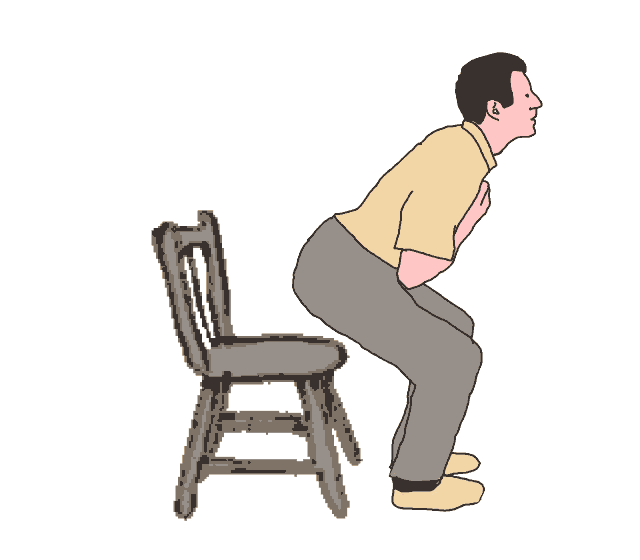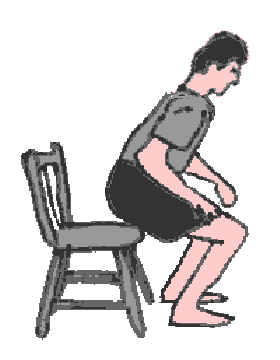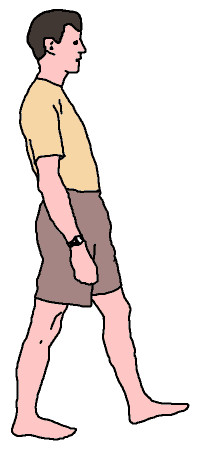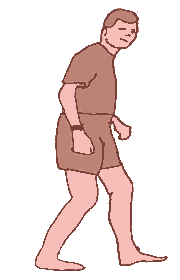|
|
|---|
So what is a good Posture-Movement?
That's a huge subject - we move our bodies through a miriad of patterns every day.
How can we possibly identify what is good posture-movement?
We can simplify the answer by giving just three examples of common movement patterns
that we perform throughout the day. Get these right, and the rest will
tend to fall into place automatically:-
- When going from standing to sitting (and the reverse - from sitting to standing), the whole
spine must remain stable and supported.
- When walking or running, the Gluteus maximus should "engage at heal strike",
and the knees should not collapse inward.
- When forward bending,the hip and knee joints must move first before the spine
starts to move. And likewise, When returning from forward bending, the hip and
knee joints must still move first!
- When sitting, the lowest part of your spine must avoid full flexion.
I will discuss these three movement patterns further, but before I do, I wish to
impress upon you the fact that a quick perusal of online information will never "fix" your movement patterns.
I encourage you to print this and subsequent pages, and to perform the movement patterns for yourself.
Make sure also that you can look at yourself in the mirror. Better still,
get a friend with a video camera to film you!
(Back pain, Good posture Movement scroll right>>>...)
|
Going from standing to sitting...
|
The backpain patient slumps into a chair with hip and knee muscles totally relaxed.
As a result, the lumbar spine (and the neck too) arches backward outside of its safe
range of movement. In contrast, the healthy person goes down as though about to "latrine
squat" , and lands the buttock on the front of the chair, then eases himself backward
until the spine is comfortably supported by the chair back, making sure thta the lowest lumbar vertebra and top of
pelvis do not slump backwards against the chair back.
|
How not to Sit Down:
The back and neck are arched,and the person is falling backward into the seat.
 |
Correct Stand to Sit Motion:
Back and neck are at the center of their range of motion. The body is supported by the legs.

|
Buy now! -
The Back Maintenace Manual: Pilates Exercises for Low Back Pain
|
|
Walking or Running...
The backpain patient does not engage the Gluteus maximus at heal strike, the knees
collapse inward, and his foot arches collapse. The result is that the "shock
absorbers" in the legs are not functional, and the back gets a rough ride. In addition
to this, the back is not supported by the Gluteus maxmimus pulling the thoraco-lumbar
fascia tight (see article "Engage Gluteus maximus" by this author). In contrast, the
healthy person engages his Gluteus maximus and forms his foot arches, and his back experiences
a ride as smooth as that of a passenger in a citroen car!
|
Incorrect Walking, without engaging the Gluteus maximus

|
Correct Walking: Gluteus maximus engaging as the foot lands,
and Knees not collapsing inwards.

|
(Continued...
Back Pain - Posture-Movement, part 2)
Backpain Sound Posture-movement © Bruce Thomson, EasyVigour Project
scroll up^^^^....)
|
|



